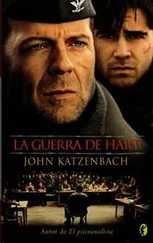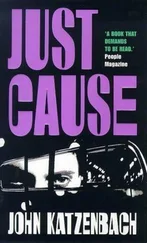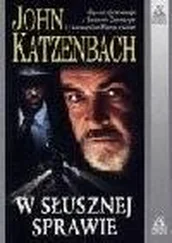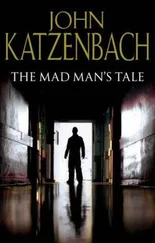The principal was looking over his shoulder. “She had no chance,” she said.
“I’m sorry?” Ricky replied, the words forming a question.
“She was the only child of a, uh, difficult couple. Living on the edge of poverty. The father was a tyrant. Perhaps worse…”
“You mean…”
“She displayed many of the classic signs of sexual abuse. I spoke with her often when she would have these uncontrollable fits of depression. Crying. Hysterical. Then calm, cold, almost removed, as if she were somewhere else, even though she was sitting in the room with me. I would have called the police if I’d had even the slightest bit of concrete evidence, but she would never acknowledge quite enough abuse for me to take that step. One has to be cautious in my position. And we didn’t know as much about these things then as we do now.”
“Of course.”
“And, then, I knew she would flee, first chance. That boy…”
“Boyfriend?”
“Yes. I’m quite certain she was pregnant and well along at that, when she graduated that spring.”
“His name? I wonder if any child might still be… It would be critical, you know, with the gene pool and all, I don’t understand this stuff the doctors tell me, but…”
“There was a baby. But I don’t know what happened. They didn’t put down roots here, that’s for sure. The boy was heading to the navy, although I don’t know for certain that he got there, and she went off to the local community college. I don’t think they actually ever married. I saw her once, on the street. She stopped to say hello, but that was it. It was as if she couldn’t talk about anything. Claire went from being ashamed about one thing right to the next. The problem was that she was bright. Wonderful on the stage. She could play any part, from Shakespeare to Guys and Dolls , and do it wondrously. Real talent for acting. It was reality that was a problem for her.”
“I see…”
“She was one of these people you’d like to help, but can’t. She was always searching for someone who could take care of her, but she always found the wrong people. Without fail.”
“The boy?”
“Daniel Collins?” The principal took the yearbook and flipped back a few pages and then handed it to Ricky. “Good-looking, huh? A ladies’ man. Football and baseball, but never a star. Smart enough, but didn’t apply himself in the classroom. The sort of kid who always knew where the party was, where to get the booze, or the pot or whatever, and he was the one who never got caught. One of those kids who was merely slipsliding through life. Had all the girls he wanted, but especially Claire, on a string. It was one of those relationships you are powerless to do anything about, and know will bring nothing but sorrow.”
“You didn’t like him much?”
“What was there to like? He was a bit of a predator. More than a bit, actually. And certainly only really interested in himself and what made him feel good.”
“Do you have his family’s local address?”
The principal rose, went over to a computer, and typed in a name. Then she took a pencil and copied down a number onto a scrap piece of paper, which she handed over to Ricky. He nodded a response.
“So you think he left her…”
“Sure. After he’d used her up. That was what he was good at: using people then discarding them. Whether that took one year or ten, I don’t know. You stick in my line of work, you get pretty good at predicting what will happen to all these kids. Some might surprise you, one way or the other. But not all that many.” She gestured at the yearbook prediction. On Broadway or under it. Ricky knew which of those two alternatives had come true. “The kids always make a joke along with a guess. But life’s rarely that amusing, is it?”
Before heading to the VA Hospital, Ricky stopped at his motel and changed into the black suit. He also took with him the item that he’d borrowed from the property room of the theater department back at the university in New Hampshire, fitted it around his neck and admired himself in the mirror.
The hospital building had the same soulless appearance as the high school. It was two stories, whitewashed brick seemingly plopped down in an open space between, by Ricky’s count, at least six different churches. Pentecostal, Baptist, Catholic, Congregational, Unitarian, AME, all with the hopeful message boards on their front lawns proclaiming unfettered delight in the imminent arrival of Jesus, or at least, comfort in the words of the Bible, spoken fervently in daily sessions and twice on Sundays. Ricky, who had gained a healthy disrespect for religion in his psychoanalytic practice, rather enjoyed the juxtaposition of the VA Hospital and the churches: It was as if the harsh reality of the abandoned, represented by hospital, did some measure of balancing with all the optimism racing about unchecked at the churches. He wondered if Claire Tyson had been a regular church visitor. He suspected as much, given the world she grew up in. Everyone went to church. The trouble was, it still didn’t stop folks from beating their wives or abusing their children the remaining days of the week, Ricky thought, which he was relatively certain that Jesus disapproved of, if He had an opinion at all.
The VA Hospital had two flagstaffs, displaying the Stars and Stripes and the flag of the State of Florida side by side, both of which hung limply in the unseasonable late spring heat. There were a few desultory green bushes planted by the entranceway, and Ricky could see a few old men in tattered gowns and wheelchairs on a small side porch sitting about unattended beneath the afternoon sun. The men weren’t in a group or even in pairs. They each seemed to be functioning in an orbit defined by age and disease that existed solely for themselves. He walked on, through the entranceway. The interior was dark, almost gaping like an open mouth. He shuddered as he walked in. The hospitals where he’d taken his wife before she died were bright, modern, designed to reflect all the advancements in medicine, places that seemed filled with the energy of determination to survive. Or, as was her case, the need to battle against the inevitable. To steal days from the disease, like a football player struggling to gain every yard, no matter how many defenders clung to him. This hospital was the exact opposite. It was a building on the low end of the medical scale, where the treatment plans were as bland and uncreative as the daily menu. Death as regular and simple as plain, white rice. Ricky felt cold, walking inside, thinking that it was a sad place where old men went to die.
He saw a receptionist behind a desk, and he approached her.
“Good morning, father,” she said brightly. “How can I help you?”
“Good morning, my child,” Ricky replied, fingering the clerical collar that he’d borrowed from the university property room. “A hot day to be wearing the Lord’s chosen outfit,” he said, making a joke. “Sometimes I wonder why the Lord didn’t choose, oh, those nice Hawaiian shirts with all the bright colors, instead of the collar,” Ricky said. “Be much more comfortable on a day like this.”
The receptionist laughed out loud. “What could He have been thinking?” she said, joining him in the humor of the moment.
“So, I am here to see a man who is a patient. His name would be Tyson.”
“Are you a relative, father?”
“No, alas, no, my child. But I was asked by his daughter to look him up when I came down here on some other church-related business.”
This answer seemed to pass muster, which is what Ricky had expected. He didn’t think anyone in the panhandle of Florida would ever turn away a man of the cloth. The woman checked through some computer records. She grimaced slightly, as the name came up on her screen. “That’s unusual,” she said. “His records show no living relatives. No next of kin at all. You’re sure it was his daughter?”
Читать дальше












